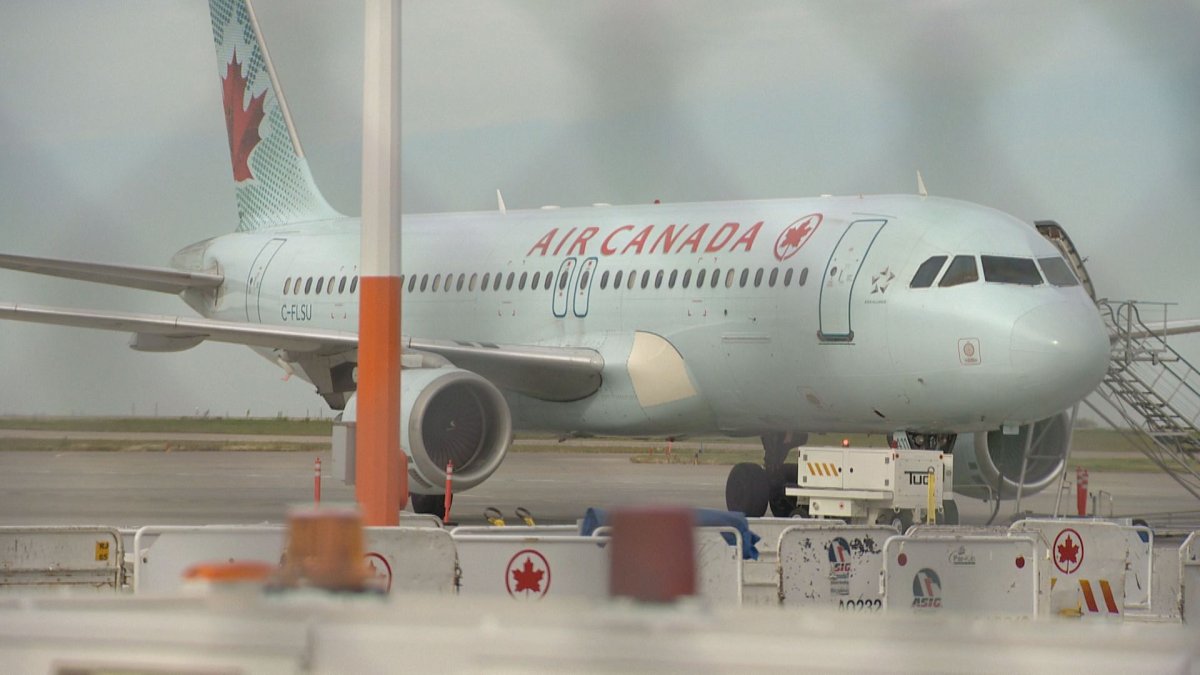The Saskatchewan government says five flights departing from or arriving in Regina and Saskatoon had passengers with confirmed cases of the novel coronavirus.

The dates range from June 11 to July 6, according to a post on the government’s website.
Air Canada cases involve rows 14-20 on AC 7947 from Toronto to Regina on July 4, rows 13-19 on AC 217 from Saskatoon to Vancouver on June 16, and AC 1121 from Toronto to Saskatoon on June 23 with unknown row numbers.
The WestJet flights were rows 4-10 on WS3370 from Calgary to Saskatoon on June 11, and WS296 from Calgary to Regina on July 6 — row numbers were not provided.
“It is assumed the passenger was unaware of their COVID status prior to boarding the flight; otherwise, the airline would not have allowed them to board,” the province said in an emailed statement on Wednesday.
“It is possible the passenger began to feel unwell during their flight(s) which prompted them to call 811 to be assessed upon reaching their destination.”
The province says everyone who was on these flights should self-monitor for symptoms for 14 days, and those returning from international destinations must self-isolate for 14 days.
“People with COVID-19 care asked to self-isolate, while international travellers are federally mandated to self-isolate for 14 days upon arrival at their destination regardless of symptoms or laboratory testing,” the province said.

Questions about COVID-19? Here are some things you need to know:
Symptoms can include fever, cough and difficulty breathing — very similar to a cold or flu. Some people can develop a more severe illness. People most at risk of this include older adults and people with severe chronic medical conditions like heart, lung or kidney disease. If you develop symptoms, contact public health authorities.
To prevent the virus from spreading, experts recommend frequent handwashing and coughing into your sleeve. They also recommend minimizing contact with others, staying home as much as possible and maintaining a distance of two metres from other people if you go out. In situations where you can’t keep a safe distance from others, public health officials recommend the use of a non-medical face mask or covering to prevent spreading the respiratory droplets that can carry the virus.
For full COVID-19 coverage from Global News, click here.




Comments